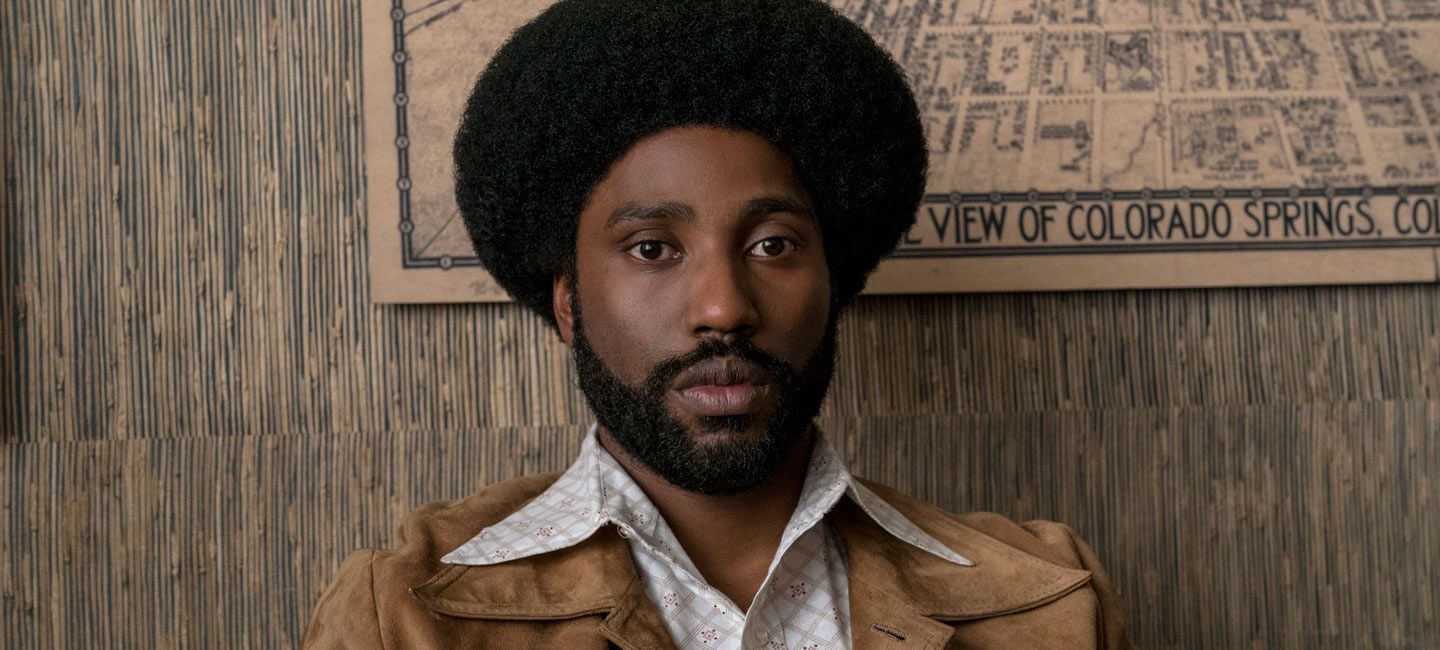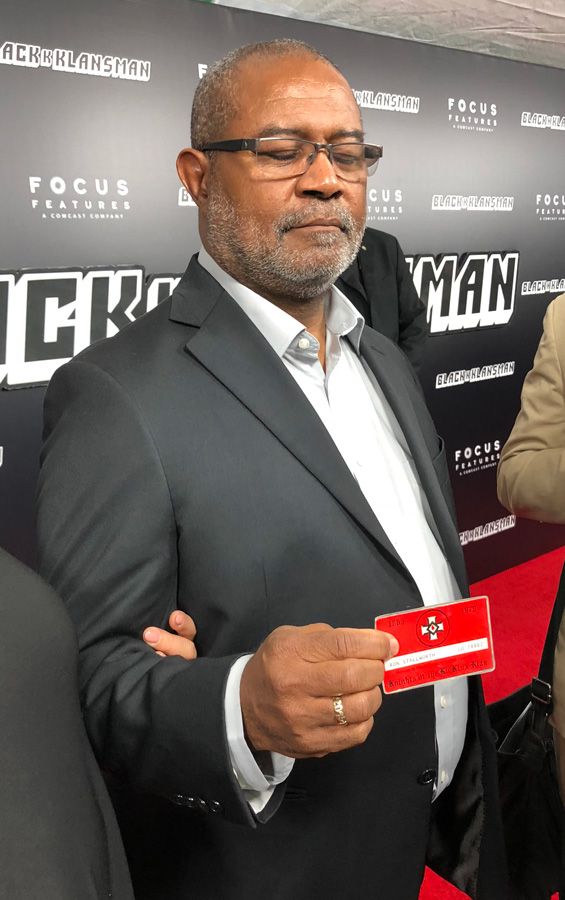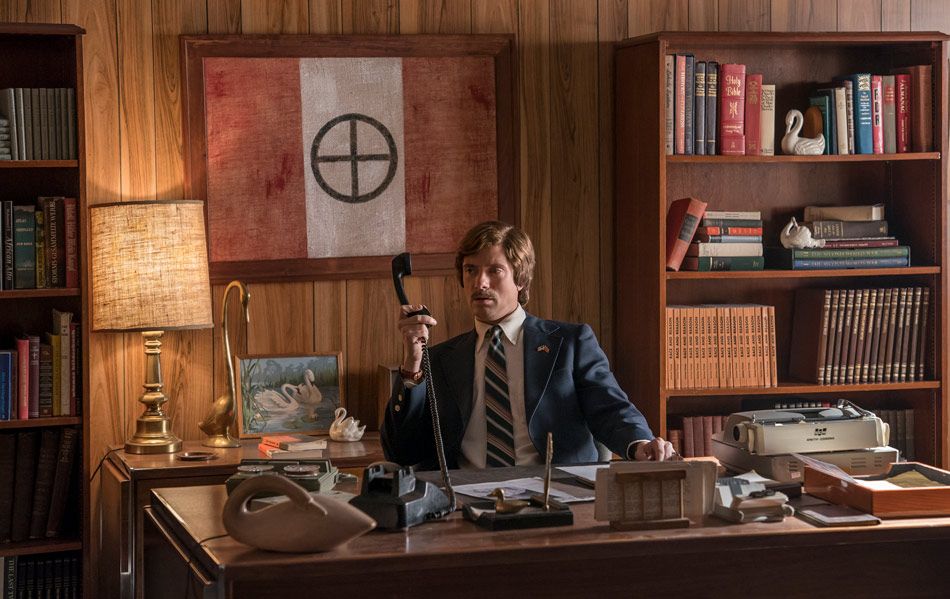
Back In The Day: BlacKkKlansman Captures Its Author’s Life And Times
A Q&A with Ron Stallworth, whose memoir Black Klansman became a Spike Lee movie
In 1978, Ron Stallworth, an African American detective with the Colorado Springs Police Department, did something fairly audacious. Wanting to find out more about what the local branch of the Ku Klux Klan was up to, he contacted them expressing his desire to join their ranks. What followed became one of the most unbelievable adventures of recent time. Stallworth not only infiltrated their ranks but became their first African American member, a story he describes in his book Black Klansman. Stallworth’s tale has now been adapted into a film, BlacKkKlansman, by Spike Lee, with John David Washington as Stallworth and Adam Driver as the white colleague who assists him.
We spoke with Stallworth about writing the book, finding out Spike Lee would direct his life story, and hearing what audiences are saying about the film.
The official trailer for BlacKkKlansman
While the book takes place in the 1970s, you wrote it fairly recently?
I wrote Black Klansman beginning in March 2013 and finished it about nine months later. I thought about writing it over the years but never got around to it. Then in March 2013, I put pen to paper and started writing.

Ron Stallworth at the premiere of BlacKkKlansman with this Ku Klux Klan membership card.
After such a long and illustrious career in law enforcement, what made this story so special to you?
It is a very unique story. Who would have believed a black man would pull a stunt like I did in becoming a member of the Klan. Through the years, friends who knew what happened thought I ought to write it down. It was a story that needed to be told and there was a message there for people today.
What was the reaction when the book was published?
There was a lot of buzz. Lots of film and TV people wanted to know if I had representation or if I had sold the rights. I worked with a few companies, but those projects didn’t go anywhere. Then I landed with Shaun Reddick who brought the project to Jordan [Peele], who then brought it to Spike [Lee] to direct. All total, it was about a four-year process from book to screen.
How did it feel watching your life turn into a motion picture?
I was very pleased. When I was first asked who I wanted to play me, I said Denzel [Washington], who is arguably my favorite actor. I also knew that Denzel was too old. We talked about other actors, but none of them worked out. When the part went to John David [Washington, Denzel’s son], I couldn't be happier. He did a wonderful job. I'm proud to consider him a Stallworth brother now.
Was it odd when you saw your past?
Yes, it was very surreal to watch my life unfold on the screen. The best way I can describe it is that it was like having an out-of-body experience. I was seeing the events of my life that happened forty years ago now. And I was watching the words that I wrote come alive. Very surreal.
Did BlacKkKlansman take you back to that time in your life?
A little bit. Especially the music. I remembered what it was like going to the discos and working undercover trying to buy drugs off of people. The way that John David dressed in the film really took me back.
It must be odd to see that some characters, like David Duke, are still around stirring up controversy.
Duke is still around but he is not a leader. Yet he still preaches the same nonsense today as when I was dealing with him. Duke is not relevant but as long as he has a voice we need to be vigilant to the message he is putting out.

Topher Grace places David Duke in BlacKkKlansman.
Having seen the final film, how do you feel about it?
I love the movie. I have seen it three times and each time I find something new to like. I am a fan of all of Spike Lee's work. Malcolm X is my favorite but I really feel that BlacKkKlansman compares to it—and not just because I wrote the book. I believe it is that powerful of a movie. The message is very relevant even though the events depicted happened forty years ago.
How have audiences reacted to it?
Some individuals have come up to me to thank me for the work that I've done, especially in coming up with a plan to embarrass the Klan. Others have expressed appreciation for all that I went through. But, you know, I wasn't seeking recognition when I decided to write the book. I just wrote it to tell a story that I thought was unique and needed to be told. Everything else is icing on the cake.
Sign up for the Focus Insider newsletter to be first in line for free advance screenings, world premiere travel packages, weekend set visits, and so much more!